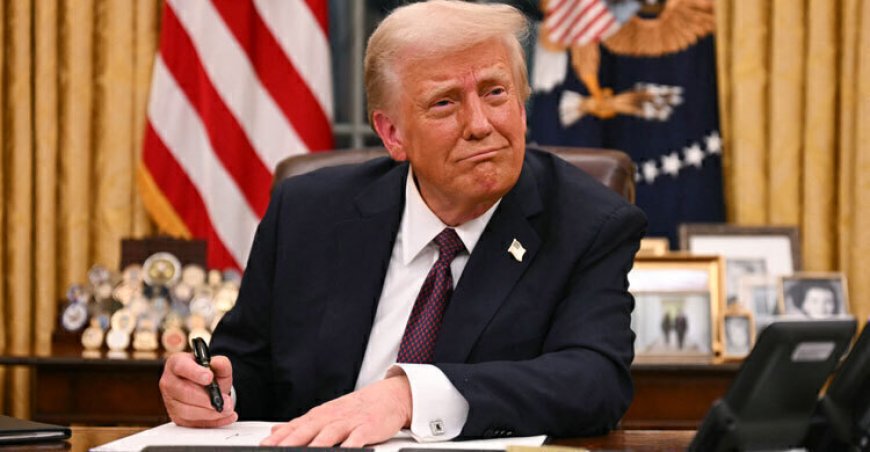US tariffs on Bangladeshi products may have risen to as high as 52%
US tariffs on Bangladeshi products may have risen to as high as 52%

What's Your Reaction?







Join our subscribers list to get the latest news, updates and special offers directly in your inbox

If the heightened reciprocal tariffs introduced by US President Donald Trump had remained in effect, countries like Bangladesh would have faced significant economic challenges. Although a three-month suspension of the tariff hike was announced on Wednesday, a minimum retaliatory tariff of 10 per cent is still applicable. On 7 April, President Trump issued an executive order implementing a 37 per cent tariff on Bangladeshi goods, in addition to existing duties. According to the US International Trade Commission, Bangladeshi exports to the US in 2024 already faced an average tariff of 15 per cent—bringing the potential cumulative rate to approximately 52 per cent had the new tariff been enforced.
Other nations also faced substantial tariff hikes, including 26 per cent on India, 46 per cent on Vietnam, 32 per cent on Indonesia, 49 per cent on Cambodia, and 29 per cent on Pakistan. While official total tariff rates remain unreleased, industry calculations suggest Bangladesh’s average tariff on garment exports could have reached 48.56 per cent. In comparison, Cambodia’s would have been 60.70 per cent, Vietnam’s 57.5 per cent, India’s 38.47 per cent, Indonesia’s 43.45 per cent, and Pakistan’s 41.46 per cent—figures that vary by product category.
China was the first to encounter these tariffs, initially at 34 per cent, which escalated further. President Trump later announced a 125 per cent tariff on Chinese goods. If the suspension had not occurred, Bangladesh would have faced higher tariff rates than India, Indonesia, and Pakistan, though lower than those imposed on China, Vietnam, and Cambodia.
Trade expert Mustafa Abid Khan, former member of the Bangladesh Trade and Tariff Commission, warned of significant repercussions even before the suspension, stating that factories in Bangladesh are not prepared to absorb such costs. Additionally, US demand could decline due to higher prices, prompting buyers to shift to alternative markets with lower tariffs.
The new tariff policy, announced by President Trump on 2 April, imposed a minimum 10 per cent duty on all exporting countries, while 60 nations identified as having large trade surpluses with the US faced elevated tariffs. The announcement triggered global economic reactions, including falling stock markets, oil prices, and dollar value, as concerns of a recession grew.
Bangladesh actively lobbied for a moratorium. On 8 April, Professor Muhammad Yunus, advisor to the interim government, sent a formal request to the White House, and Trade Advisor Sheikh Bashiruddin appealed separately to the US Trade Representative, highlighting Bangladesh’s zero-tariff regime on 190 products and its plans to extend it to 100 more. The US is Bangladesh’s top export destination, with USD 7.6 billion worth of goods exported in FY 2023–24—over 17 per cent of national exports, mostly in ready-made garments.
Data from the National Board of Revenue shows 87 per cent of these exports were apparel, along with items like caps, leather footwear, home textiles, wigs, and leather goods. Currently, 2,326 Bangladeshi companies export to the US, with 957 depending on it for over 25 per cent of their output.
Following the tariff announcement, several exporters in the RMG and leather sectors received order suspension notices, calls for price reductions, or shipment delays from US buyers. Dress King, a major exporter from Chattogram, confirmed buyer pressure for discounts, while Sparrow Group of Industries also reported suspended orders and price negotiations.
Despite the temporary relief, exporters remain concerned about the post-suspension tariff framework. Fazlul Haque, former BKMEA president, stressed the need for government support to help factories—especially small and medium units—navigate this challenging period. He emphasized that while Bangladesh’s long-term prospects remain strong, short-term resilience and policy support are essential amid ongoing uncertainty.







Suvradas Dec 29, 2025 0
